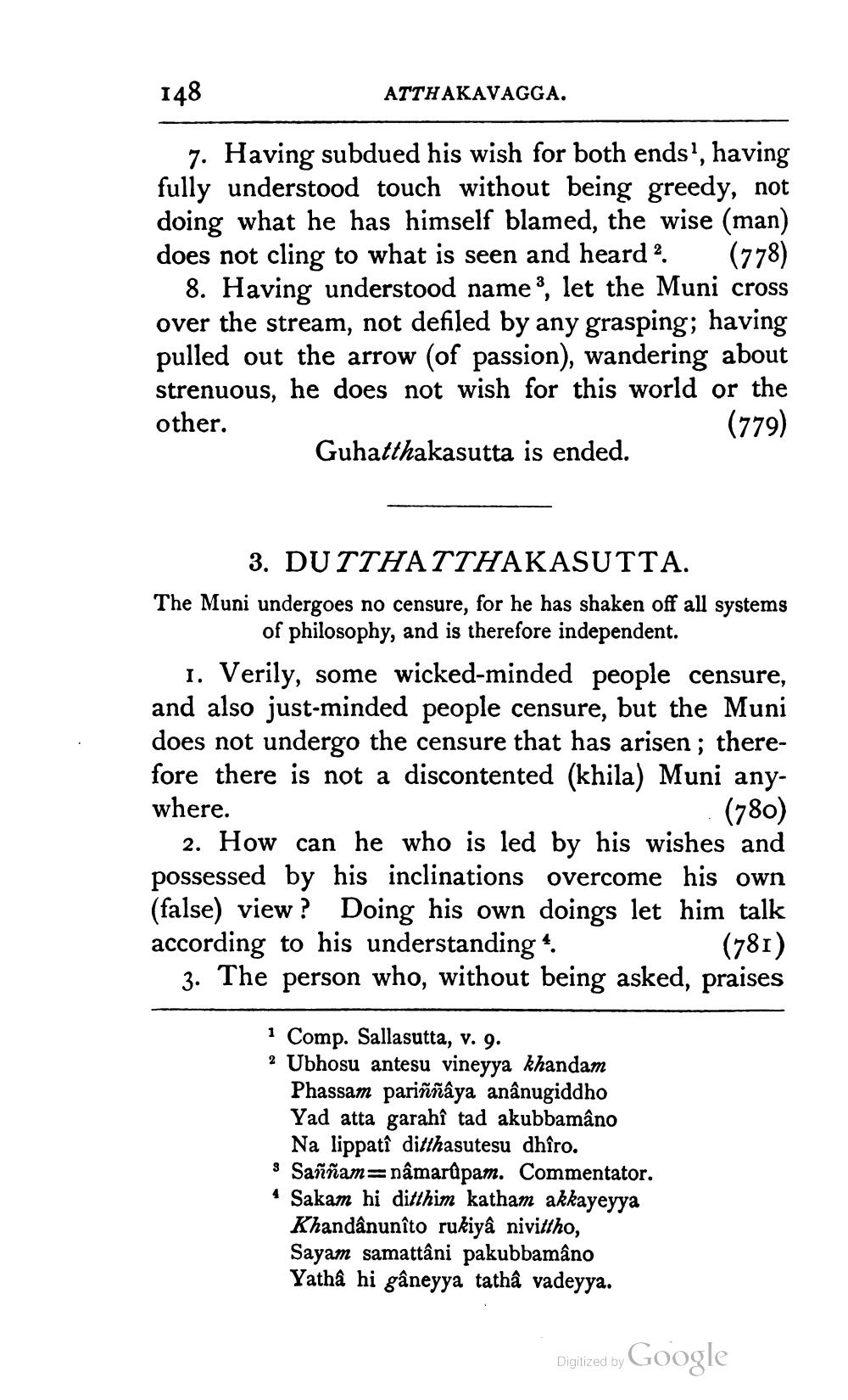________________
148
ATTHAKAVAGGA.
7. Having subdued his wish for both ends?, having fully understood touch without being greedy, not doing what he has himself blamed, the wise (man) does not cling to what is seen and heard ? (778)
8. Having understood names, let the Muni cross over the stream, not defiled by any grasping; having pulled out the arrow (of passion), wandering about strenuous, he does not wish for this world or the other.
(779) Guhatthakasutta is ended.
3. DUTTHATTHAKASUTTA. The Muni undergoes no censure, for he has shaken off all systems
of philosophy, and is therefore independent. 1. Verily, some wicked-minded people censure, and also just-minded people censure, but the Muni does not undergo the censure that has arisen ; therefore there is not a discontented (khila) Muni anywhere.
(780) 2. How can he who is led by his wishes and possessed by his inclinations overcome his own (false) view ? Doing his own doings let him talk according to his understanding 4.
(781) 3. The person who, without being asked, praises
1 Comp. Sallasutta, v. 9. 2 Ubhosu antesu vineyya khandam
Phassam pariññâya anânugiddho Yad atta garahî tad akubbamâno Na lippatî ditthasutesu dhîro. 3 Saññam=nâmarûpam. Commentator. 4 Sakam hi ditthim katham akkayeyya
Khandânunîto rukiyâ nivittho, Sayam samattâni pakubbamâno Yathâ hi gâneyya tathâ vadeyya.
Digitized by Google




